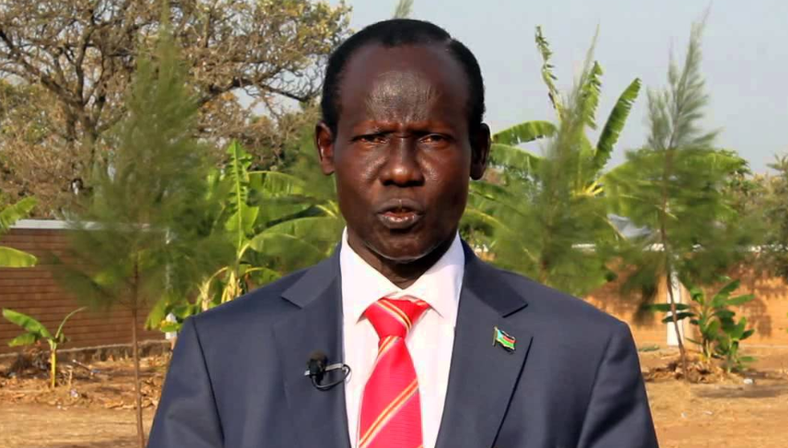South Sudanese President Salva Kiir on Monday night reinstated Dr. James Wani Igga as vice president in charge of the Economic Cluster, ending days of speculation over the position, according to state-run media.
The move is part of a sweeping political reshuffle that replaced four national ministers and senior government officials.
South Sudan has five vice presidents under a 2018 peace deal that ended the country’s civil war.
Igga, a veteran politician and general, was dismissed in February after serving as vice president since 2013. A longtime liberation-era ally of Kiir, he was also reinstated as first deputy chair of the ruling SPLM after being removed from that role in May.
Igga’s return follows the removal last week of Dr. Benjamin Bol Mel, who had briefly occupied the vice presidency and the deputy SPLM chairmanship.
Bol Mel, a prominent businessman who rose rapidly in political influence, lost both positions and was stripped of the four-star general rank he received in September 2025.
Kiir also dismissed Bol Mel from the National Security Service. No reason was given, though the move followed reports of internal power struggles and alleged misuse of government revenues.
Cabinet changes
Kiir also dismissed several ministers, including Information Minister Michael Makuei Lueth, Roads and Bridges Minister Simon Mijok Mijak, Environment Minister Josephine Napwon Cosmos, and Justice Minister Joseph Geng Akech.
Makuei, who oversaw the information docket for more than a decade and is known for imposing tight controls on the media, was reassigned as justice minister.
A judge by training, Makuei previously served as minister of legal affairs during the semi-autonomous southern region before independence in 2011.
Geng Akech, appointed in September and known for advancing the ongoing trial of suspended First Vice President Dr. Riek Machar, received no new appointment. He is widely viewed as a close ally of Bol Mel.
Kiir named former presidential press secretary Ateny Wek Ateny as the new information minister. Ateny served nine years in the presidential office before being removed in August 2022.
For the roads and bridges ministry, Kiir appointed Peter Lam Both, former SPLM secretary-general, to replace Mijok.
Mabior Garang, the eldest son of the late SPLM founding leader Dr. John Garang, was named national minister of environment.
Mabior’s mother, Rebecca Nyandeng de Mabior, has served as vice president for the Gender and Youth Cluster since 2020, representing the Former Detainees (FDs). It remains unclear whether her son’s appointment might affect her position.
Security and state-level changes
Kiir dismissed Inspector General of Police Gen. Abraham Manyuat Peter, who had served since December 2024, and reappointed Gen. Saeed Chawul Lom to the post. Chawul previously served as police chief from March 2017 to February 2018.
In Central Equatoria State, the president removed Governor Rabi Mujung Emmanuel, appointed in June 2025, and reinstated Emmanuel Adil Anthony. Adil served as governor from June 2020 until Kiir dismissed him in May 2024.
Diplomatic appointments
Kiir appointed Regina Akur Nyok as South Sudan’s deputy ambassador to China. Last week, Akur was appointed Deputy Office Manager in the Office of the President.
The president reinstated Monica Achol Aguek as a Grade One Ambassador, naming her presidential envoy for the Middle East.
The presidential decrees did not provide reasons for any of the changes.
Analysts react
Political analysts said the reshuffle suggests Kiir is consolidating his authority after a falling-out with Bol Mel, who was once viewed as a potential successor.
Dr. Remember Miamingi, a South Sudanese governance expert, said frequent reshuffles in South Sudan have turned government posts into “tokens in a game of power and patronage” rather than positions of responsibility.
Edmund Yakani, a civil society advocate, called the presidential decrees “a recycling of old guards” and urged the government to “sincerely and genuinely implement the 2018 peace agreement without selectivity or favoritism.” He said the country urgently needs an inclusive political dialogue.
The 2018 peace agreement gives the president wide powers to appoint and dismiss officials at both national and state levels.
South Sudan has not held an election since independence in 2011.
The vote has been postponed several times, and the transitional government says general elections are now planned for December 2026.




